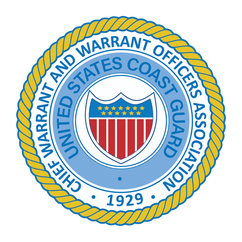|
By Aniela Szymanski Congress passed the National Defense Authorization Act (NDAA), and the President is expected to sign it into law before the Continuing Resolution that is currently keeping the government funded expires. The NDAA includes a 5.2% pay raise, as well as other provisions related to benefits. For example, Congress authorized the Secretaries to pay junior members of the uniformed services monthly bonuses if the Secretary determines that economic conditions may adversely affect those members in 2024. This is a unique provision that could be quite helpful to some junior servicemembers if the Secretaries act upon it. The NDAA also included an increased cost-of-living allowance of 8% (up from 5%) in high-cost areas of the U.S. The NDAA had additional provisions designed to improve military housing and BAH calculations, which indicates Congress is taking seriously feedback from servicemembers regarding the economic struggles they experience, as well as their quality of life.
For the Coast Guard, however, the NDAA is only one necessary element. The Coast Guard Authorization Act (HR 2741), which is also necessary for Congress to authorize Coast Guard programs for the upcoming year, has still technically not moved past the House of Representatives, but has been placed on its calendar for a vote, which is an excellent sign of progress. The House Transportation and Infrastructure Committee informed CWOA that it does not expect the Authorization Act to be a source of controversy and that the requested $13.5 billion authorization should pass easily before the Continuing Resolution ends. This is likely because it is solely focused on the Coast Guard, which both parties agree must be adequately funded. On the other hand, the Department of Homeland Security Appropriations Act (HR 4367), which would allow spending for the Coast Guard (as opposed to just authorizing the programs), passed the House of Representatives and is waiting for Senate action. The President has stated that he opposes the Homeland Security Appropriations Act because it reduces spending in areas such as clean energy and did not include funding for USCIS, ICE and TSA programs that the President had been wanting to see. He has threatened to veto the bill if changes are not made. This political wrangling could cause the Coast Guard to be unable to spend money it was otherwise authorized to spend. See this link for the President's Administration's statement: https://www.whitehouse.gov/wp-content/uploads/2023/09/H.R.-4367-%E2%80%94-Department-of-Homeland-Security-Appropriations-Act-2024-PDF.pdf This is where CWOAUSCG members are able to assist. First, the passage of the Pay Our Coast Guard Act would ensure that Coast Guard members continue to get paid, even if government funding is not approved for other purposes. Second, CWOAUSCG members can write to Congress and let their representatives know that the Homeland Security funding is essential to the Coast Guard and encourage bipartisan action to ensure it gets passed. CWOAUSCG will continue providing updates and advocating on behalf of our membership until we are certain all funding is secured.
0 Comments
Leave a Reply. |
AuthorThe views expressed in the articles in this publication are solely those of the authors. They do not necessarily reflect the opinions of the organizations for which they work, CWOAUSCG, the U.S. Coast Guard, the Department of Defense, the Department of Homeland Security, or the U.S. government. Archives
June 2024
Categories
All
|


 RSS Feed
RSS Feed
